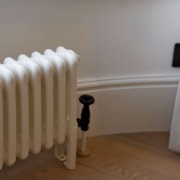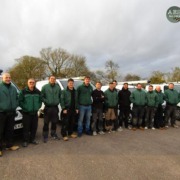Boiler Service – It’s Never Too Early
With the changeable weather we get here in the UK, it’s hard to know whether you’ll be needing the air conditioning or the central heating from one day to the next. When it comes to heating, however, it’s important to have your gas boiler serviced by an experienced, reputable engineer, to ensure that you don’t get left in the cold when winter comes knocking. Now, you may be thinking that, with the sun still shining and Wimbledon fever not yet passed, it’s far too early to be worrying about a boiler service and safety check, but trust the experts when we say that nothing could be further from the truth.nn nnThe reasons why now should be the time for arranging a boiler service and safety check are twofold:nn n
- Each new boiler we install comes with an extended guarantee absolutely free of charge, as we are Approved Gold installers for Worcester Bosch. However, although boiler insurance means your boiler should be seen to within 24 hours of a breakdown, gas engineers become extremely busy over the winter months, and you may therefore struggle to get a booking in good time.
- It is generally impossible to tell whether there is a fault with your boiler until it is turned on for the first time, which will typically be in October; far too late for a prompt repair.
Generally, the best initial course of action is to turn your boiler on during the summer months (just long enough for your radiators to start heating up) to see whether it is working. If it isn’t, then you can arrange a repair with a heating engineer in plenty of time to make sure that you’re well set up for winter. However, there are several underlying gas boiler problems that won’t become apparent from this cursory measure alone. These include:
- The top of the radiator remaining cold while the bottom is hot, resulting from a trapped air pocket within the central heating system.
- Boiler pressure regularly dropping or rising, which could be lead to hazardous and catastrophic failures.
- Your boiler could be using more gas than it should, which could simply mean it’s in need of a good clean, but could also be indicative of more serious problems.
No one wants to be uncomfortable in their own home, and by arranging a gas boiler service and boiler safety check during the summer months, you can ensure the perfect indoor temperature for you all year round. But on top of this concern, the danger of boiler explosions should also not be ignored. Gas boiler explosions can be caused by a safety valve failure, corrosion or wear of critical parts, a low water level, or several other underlying problems. All of these causes can be easily diagnosed and remedied by an experienced and qualified Gas Safe engineer during an annual gas service.
We have a team of expert Gas Engineers who are fully qualified, card-carrying members of the Gas Safe Register. Here’s our very own Dean Turner, proudly displaying his Gas Safe Register membership card, and remember, as the popular hashtag currently doing the rounds on social media goes, you can always #TrustTheTriangle:
To further add the credibility and reliability of our fantastic engineers, we have also recently gained accreditation from Health and Safety regulators, Safecontractor, and are also listed contractors on both Checkatrade and Trustatrader, the latter of which contains several reviews attesting to our sterling work ethic. To sweeten the deal, we also give all of our customers over the months of July and August a free pack of delicious biscuits:
So, not only do we make sure you’ll be safe and warm come winter, we also satisfy your sweet tooth in the process! If you need your condensing, system, or traditional gas boiler serviced or repaired, or a brand new condensing or system boiler installed by our expert team of Gas Safe engineers, get in touch today – We look forward to hearing from you: 01473 320 350 | services@aesnational.co.ukn










